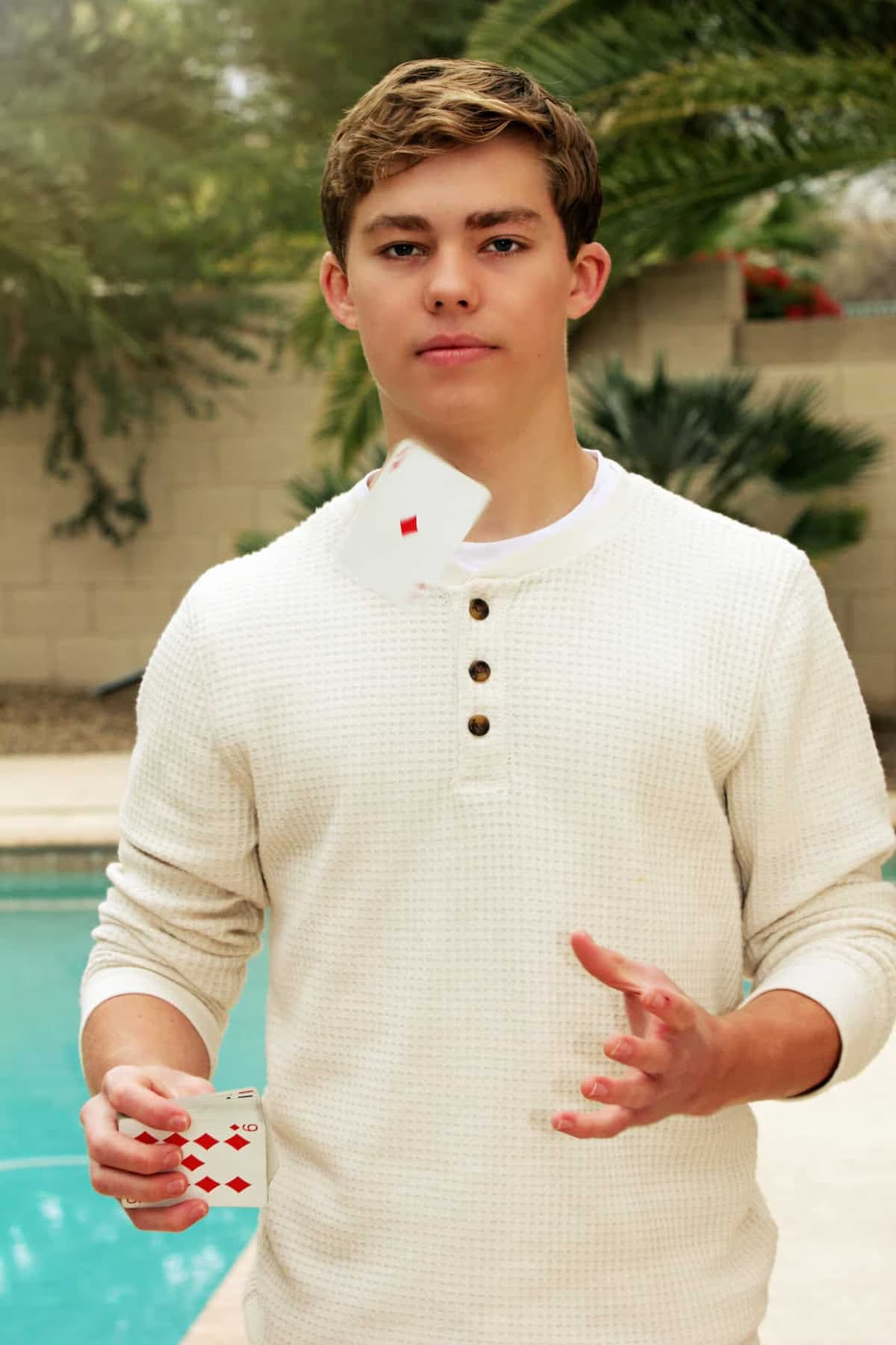It is only natural for most to begin their careers in magic by learning simple magic tricks and buying simple, self-working effects, which they can practice a bit with their friends and family. One unique—though maybe unfamiliar to everyone— little prop that does something magical. For me, it was a tiny, red wooden coin box in the 1980’s!

Here are the four must-haves to be a magician
A deck of cards (lots of them)
Think of any great magician. What do you notice? He or she probably has a deck of cards on stand-by — probably in the hand! Why do magicians obsessed with cards? It’s because playing cards have the following unique virtues:
- A deck of cards fits in your pocket
- Witha pack of cards, the performer can demonstrate all 8 types of magic tricks — levitation (rising card), mentalism (knowing which card is thought of), vanishing, production, penetration (pencil through card), teleportation (the selected card jumps from the deck to someone’s pocket), transposition (the red card and black card swap places).
- Inexpensive
- The 52 playing cards are already categorized by color, suit, and value. The wise performer can use this feature in the performance. This is not true of coins; there are only a handful of coins in circulation, and coins aren’t organized by color (you only have one US copper coin… therefore, you can’t well say, “You’re thinking of a copper coin,” because that’s the end of the trick).
Playing cards lend themselves to so many miracles. They are a must-have. We can go on and on about all the reasons magicians need playing cards. But the most convincing argument is that you simply cannot think of a great magician who is not a master of playing cards. We put playing cards at the top of the list because you could do an entire show withplaying cards (of course, making the show entertaining will be your next target).
Coins
When there’s an entire genre of magic about something you might already have in your pocket, you should know something about it. How many of your friends can vanish a quarter? It’s always startling to a layperson. There are many ways to vanish a quarter.
Books
So you have a dozen decks of cards. Now what? First, you grab an excellent book like Royal Road to Card Magic. You devour that book. Take it step-by-step. You’ll begin to learn the basics like how to hold the deck, the false shuffle, etc. Don’t skip the fundamentals because your rapid progress depends on them. Learn one great card trick. Know this: if you master one sleight (like the classic pass or the classic force), you could make a nice living for yourself withthat one maneuver. But, especially as a young magician, it’s easy to run down a hundred different roads in magic, looking at this guru and that guru. You’ll see a celebrity magician on TV do a trick, and suddenly you want to learn this new trick instead. Your curiosity is your friend, but you must learn to manage your curiosity. If you’re new to magic, the best thing you can do for yourself is to read the classics and learn the fundamentals. From there, you can go in any direction you want. My go-to resource has always been Tarbell’s magic course. You now have access to Dan Harlan’s wonderful videos, as well as the written material, which you can use to teach each lesson. You won’t know what you want to major in until you understand the basics of the craft. Regardless, there are specialized books for any area of analysis. If coins are your thing, there’s bobo, David Roth, and others. Corinda and Annemann are the bibles of the discipline if you’re interested in mentalism. Several of these effects can be seen in motion on video, in addition to the books. If you want to specialize in cards, read Roberto Giobbi’s Card College, Harry Lorayne’s works, Greater Magic, and a plethora of classic magic books. In both of these places, a single sleight mastered is worth thousands of dollars in new fad tricks!
Midnight oil
Anyone wanting to become a magician should be aware of the time and energy investment it will take. Great magicians “burn the midnight oil.” They eat, sleep, and breathe magic. When they wake, they think about magic. Throughout the day, they think about magic. Even when they sleep they dream about magic. Some magicians even sleep with a deck of cards beneath the pillow. Remember that the magician appears to do the impossible. Even though the magician may make it look easy, becoming the magician is hard work.
